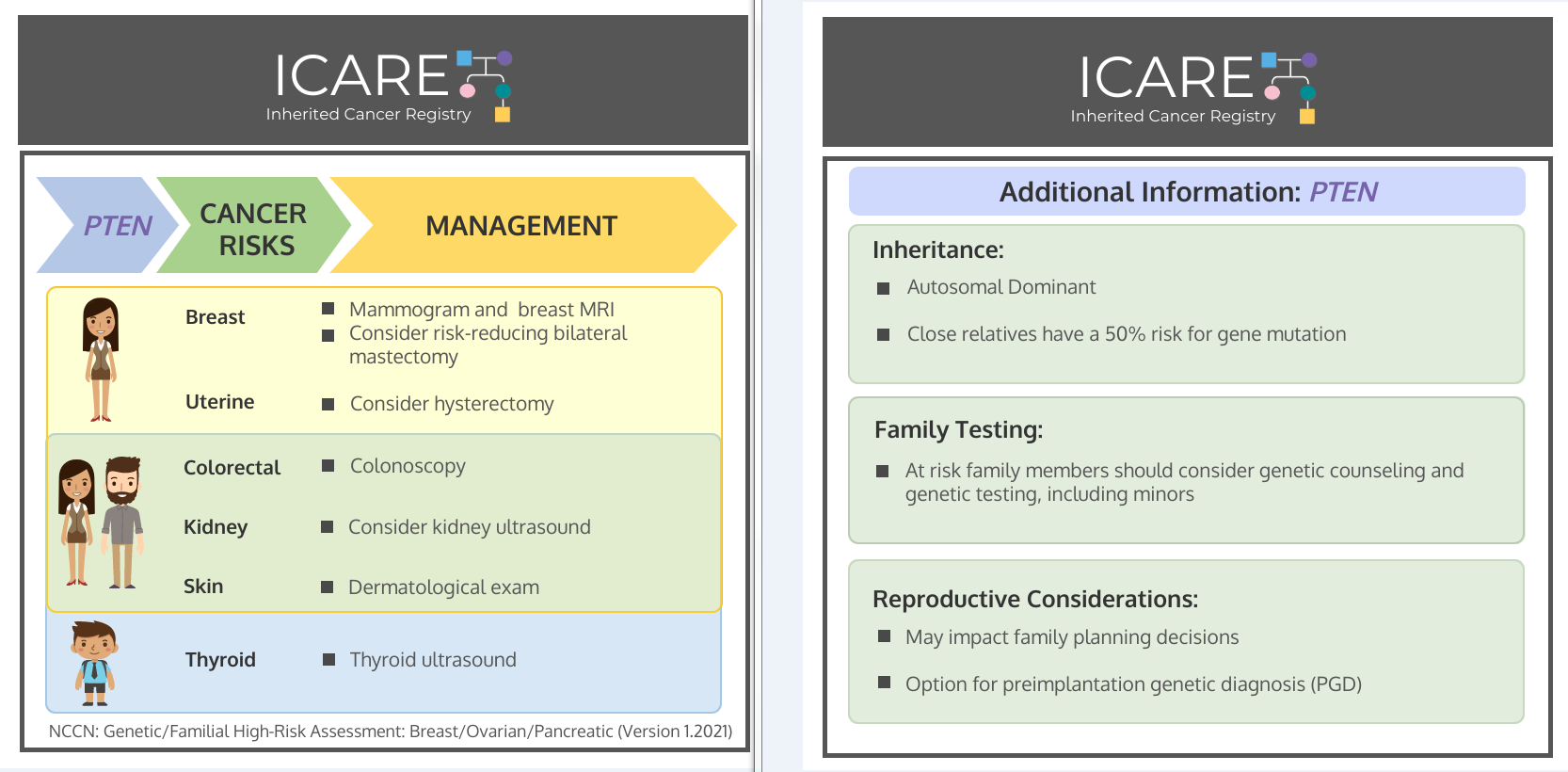 Gene: 𝙋𝙏𝙀𝙉
Gene: 𝙋𝙏𝙀𝙉
Cancer Risks and Management per National Comprehensive Cancer Network (NCCN) Genetic/Familial High-Risk Assessment: Breast/Ovarian/Pancreatic Version 1.2021:
𝗪𝗼𝗺𝗲𝗻:
Breast cancer risk: Elevated at 85% – Recommend annual mammogram starting at age 30-35 (or 5-10 years before the earliest known breast cancer in the family); consider breast MRI with contrast starting at age 30-35; consider risk-reducing mastectomy.
Uterine cancer risk: Elevated at 10-28% – Consider hysterectomy upon completion of childbearing; consider endometrial biopsy every 1-2 years starting by age 35.
𝗠𝗲𝗻 𝗮𝗻𝗱 𝗪𝗼𝗺𝗲𝗻:
Colorectal cancer risk: Elevated at 9-16% – Recommend colonoscopy every 5 years starting at age 35 unless symptomatic or if close relative with colon cancer before age 40, then start 5-10 years before earliest colon cancer in the family.
Thyroid cancer risk: Elevated at 10-35% – Recommend annual thyroid ultrasound starting at age 7.
Kidney cancer risk: Elevated at 15-34% – Consider renal ultrasound every 1-2 years starting at age 40.
Skin cancer risk: Elevated risk of melanoma at 6% – Recommend annual dermatological exam.
Inheritance: Autosomal dominant; thus, parents, full siblings, and children have a 50% risk for the gene mutation.
Family Testing: At-risk family members should consider genetic counseling and genetic testing, including minors.
Reproductive Considerations: Option for preimplantation genetic diagnosis (PGD) may be available to ensure future generations do not inherit the known gene mutation. PGD is a procedure available for certain gene mutations to screen the embryo prior to achievement of pregnancy.
Check out the full management guidelines by creating a FREE account at https://www.nccn.org/professionals/physician_gls/pdf/genetics_bop.pdf
